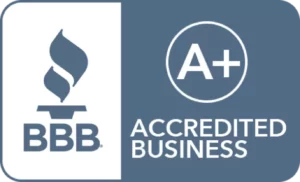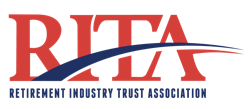KEY POINTS
- Alternative asset investing is better than Stock Market volatility
- Diversification is key to a successful retirement
- Invest in what you know and understand
Why Should You Self-Direct Your Retirement?
The case to self-direct your retirement has become stronger with each passing year. From trade wars with China to impeachment proceedings, more people are looking at alternative assets. This is especially true for retirement savers. By self-directing your IRA or 401(k) plan, you can (hopefully) protect your savings. In the following article, we’ll discuss the top three reasons you should self-direct your retirement savings.
Top 3 Reasons to Self-Direct Your Retirement
Alternative Asset Investments
As we touched upon in the opening, alternative assets are fast becoming the new norm. Due to many factors, people are shying away from traditional assets, such as stocks, bonds and mutual funds. Market volatility, inflation and the power of the dollar are just a few reasons. No one wants to lose his or her savings because of another market crash. This is why alternatives, such as real estate and precious metals, have become so popular.
However, you need to self-direct your retirement account if you hope to invest in alternatives. Most traditional financial institutions will not allow you to invest in assets other than the ones they can profit from. Banks don’t make money if you put all of your IRA or 401(k) money in a real estate investment. They make money by charging you fees on trades and by utilizing the money you have in the plan. If you choose to invest in an income property for example, you are not actively trading and most (if not all) of your funds are tied up in the property. Since banks don’t allow this, you need to find the right custodian or plan administrator.
A custodian, such as IRA Financial, doesn’t generally care what you invest in. It’s up to you, along with your financial planner, to decide on the way you wish to invest. IRA Financial will be there to set up your account, maintain the plan and help ensure you stay IRS-compliant. The onus is on you to choose the assets that work for your financial goals.
Diversification
You probably know already that diversification is one of the major keys to retirement planning. What you may not know is that you can better diversify yourself with a self-directed retirement plan. Diversifying your assets is not the only thing you should consider. Tax planning is an important factor as well. Specifically, when you pay taxes.
Retirement plans offer the saver tax incentives. You can either receive an upfront tax deduction or receive tax-free distributions. The most common plan types are traditional ones. If you contribute to a workplace 401(k), chances are it’s a traditional plan. This means your contribution is made before taxes are taken out. You don’t pay taxes on those funds until you withdraw from the plan. Conversely, Roth plans are funded with post-tax money. Although there is no tax break, all distributions will be tax-free once you reach age 59 1/2. This assumes the Roth has been open for at least five years.
It’s important to diversify your holdings as well as the tax treatment of your accounts. When you self-direct your retirement, you can accomplish both of these goals with one provider. IRA Financial allows for both Roth and traditional Self-Directed IRAs. Further, if you are self-employed, you can look at the Solo 401(k) as a way to save even more for retirement.
Invest in What You Know
One of the best investments you can make is the one you understand completely. How many people reading this really understand the Stock Market? Who knows the difference between mutual funds and exchange traded funds? On the other hand, how about real estate? If you’re in the business, or researched a property, you can probably find a good investment. When you self-direct your retirement, you aren’t limited to investments you don’t completely understand.
Your investment options are virtually unlimited. The only things you aren’t permitted to invest in include collectibles, life insurance (in an IRA) and those that are considered a prohibited transaction. Just about everything else is fair game. These include real estate, precious metals and certain coins, crowdfunding, peer-to-peer lending, small businesses and cryptocurrencies. The list goes on and on.
By working with IRA Financial, or other qualified providers, you can set up a self-directed retirement account in no time at all. You will never need permission to make an investment. This is all thanks to checkbook control. Your IRA account is tied to your bank account, which gives you the freedom to make an investment whenever you want.
Conclusion
Self-directing your retirement is not for everyone. You have to do your research, work with a financial advisor and stay within the IRS rules. Here at IRA Financial, we believe it’s worth the effort. Don’t rely on investments you don’t understand and hope for the best. Get out there in 2020 and look to self-direct your retirement.
If you have any questions, please contact us @ 800.472.1043 or check out our app to get started now!











